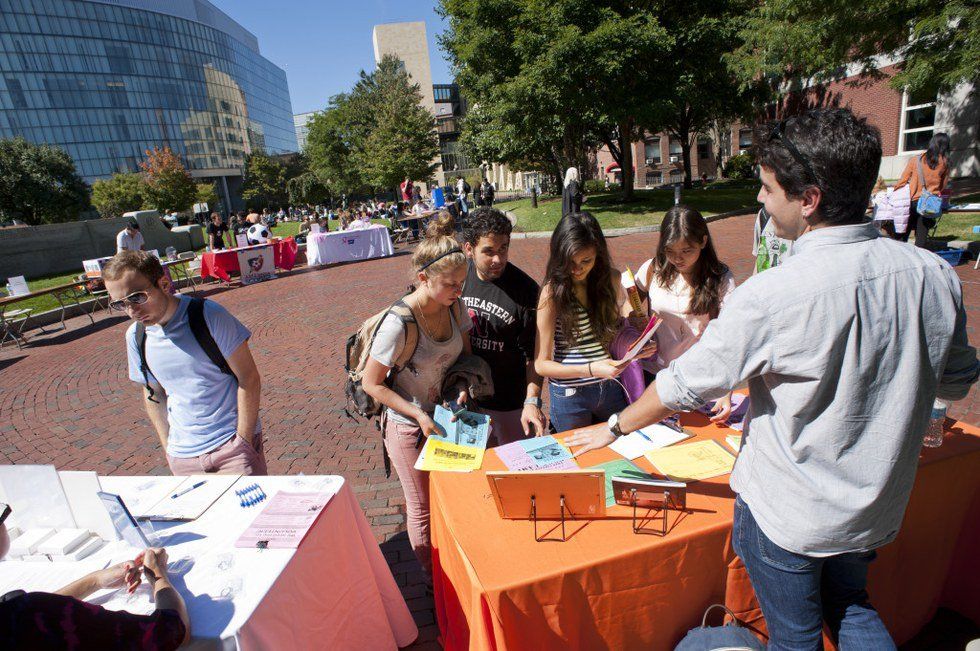As the second week of college begins, organizations, classes, and clubs all start to gear up for the rest of the semester. Club recruiting begins and the events on campus are plenty. There's free food and free activities, but what many students might not realize is the benefits they're receiving of getting involved on campus.
According to the 2013 article, “Does Involvement Really Matter? Indicators of College Student Success and Satisfaction” by Karen Webber in the Journal of Student engagement, the success of students is directly correlated with their involvement on campus. Students who are more involved within their campus are more likely to be successful academically, which may create a more positive outlook postgrad.
Piling on too many extra-curriculars is never a good idea, but there is evidence that involvement with advisors and peers outside the classroom can also help students academically.
“...high quality of relationships with faculty, staff, and students, higher levels of engagement in community, and living on campus were significantly and positively associated with cumulative GPA,” the study reported.
Students may feel more drive to succeed when they are working together with their peers. In addition, participation at the university level also created higher retention and satisfaction rates among students.
“Those who devoted more time to studying, engaged in interactions with faculty in and out of class, and participated in community service reported higher satisfaction with their overall educational experience than those who spent less time on study, engaged in fewer interactions with faculty out of class, and participated less in community service,” the study reported.
Aside from higher achievements in academics, getting involved in a campus community can also help students ease into college life. Transitioning from high school to college is not always an easy process. Involvement within the campus can help students adjust socially and emotionally. Students may also benefit from activities outside of their studies because it gives them the chance to try something new. Theater, major-related clubs, forensics, and journalism are just a few examples of activities that allow students to develop new skills.
Communities and organizations on campus can also be a great way for students to make friends and find their niche. Many students will most often make friends with those who are in their major and have similar interests, and finding clubs and organizations is a great way to find those people.
It is important that college students (especially those in their first year) do not take on more extra-curricular engagements than they can handle, but becoming involved in a couple campus activities can make for a rewarding and beneficial college experience.





















